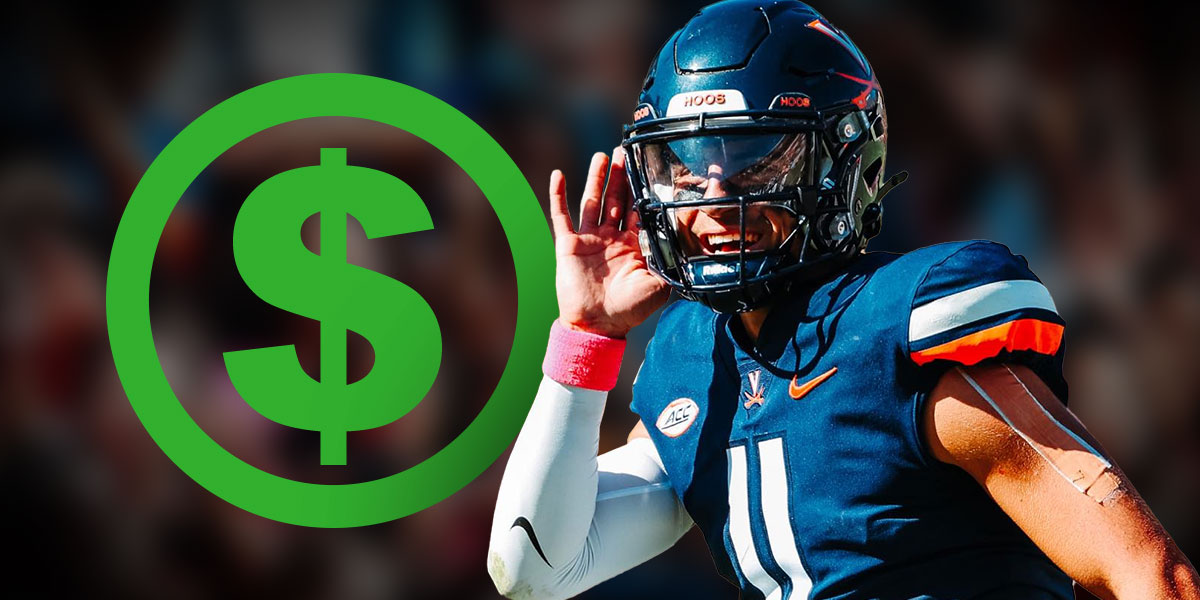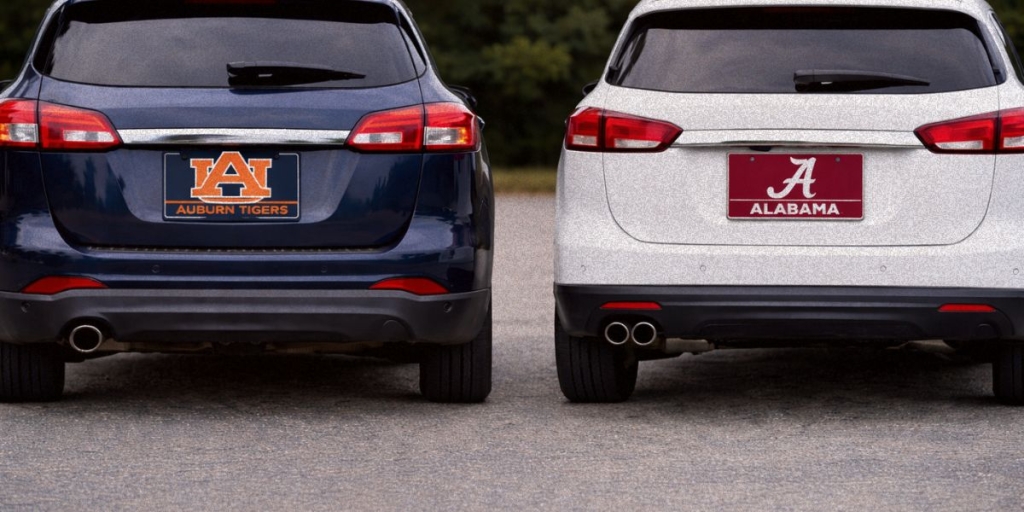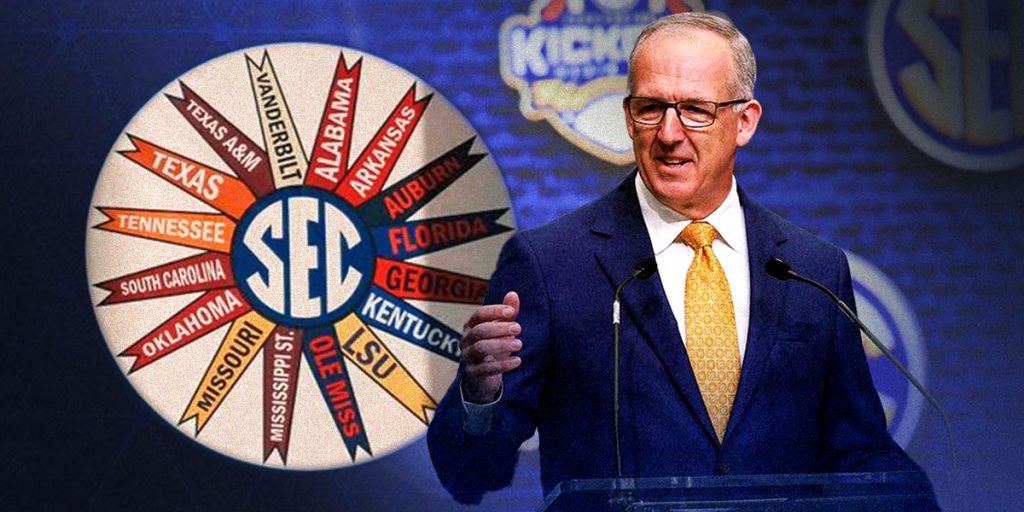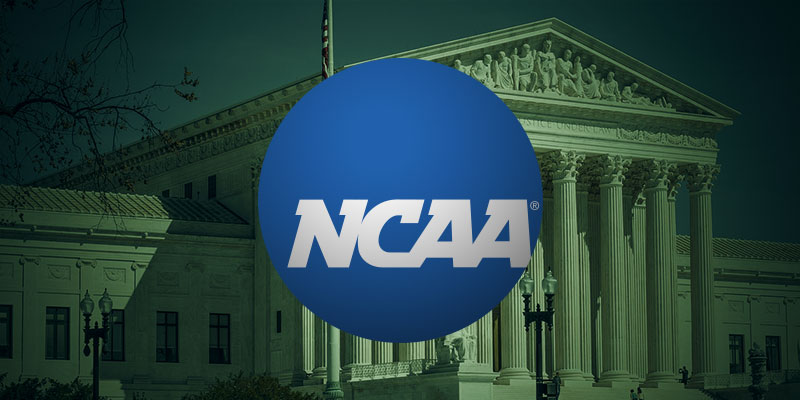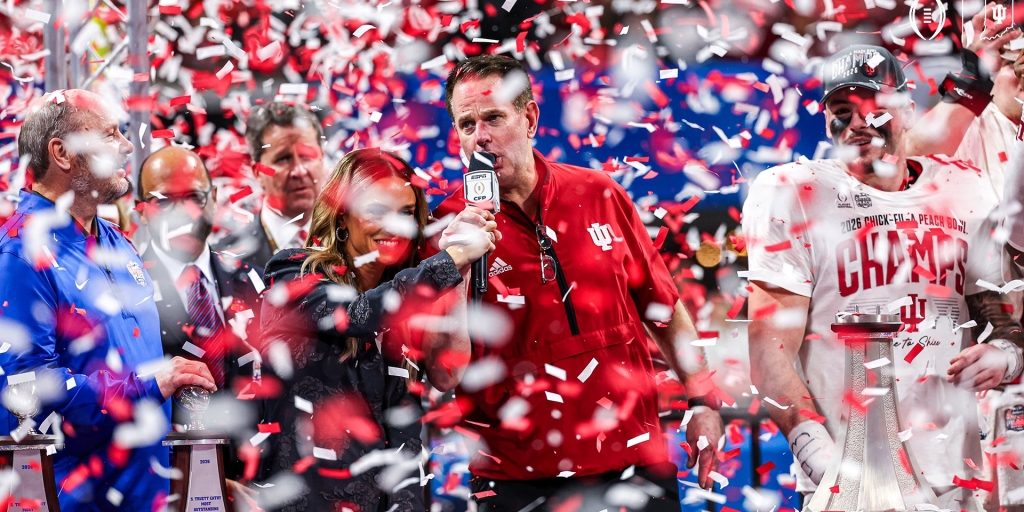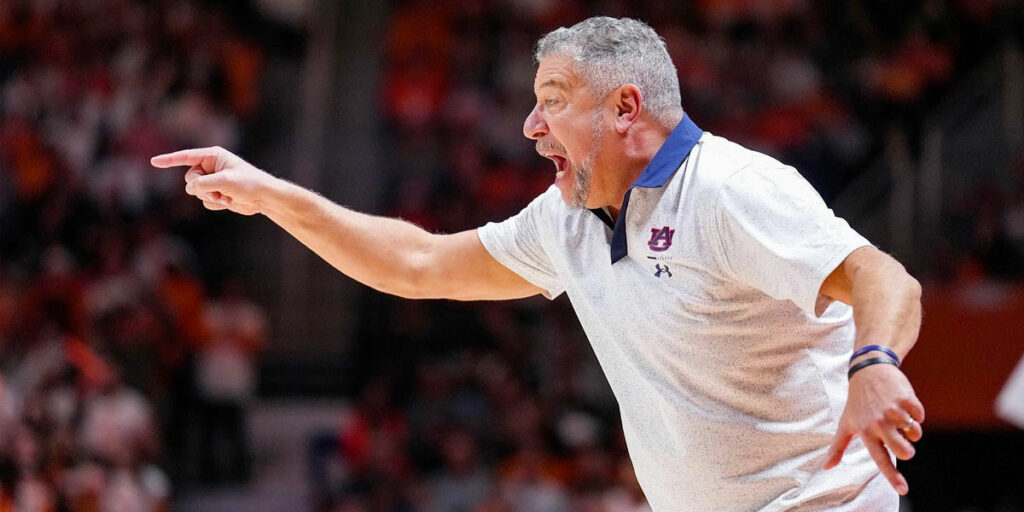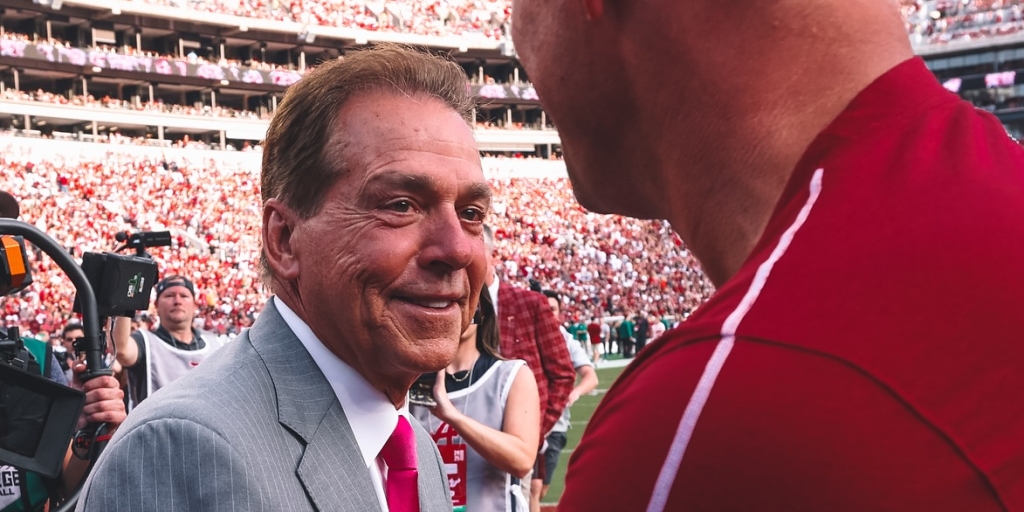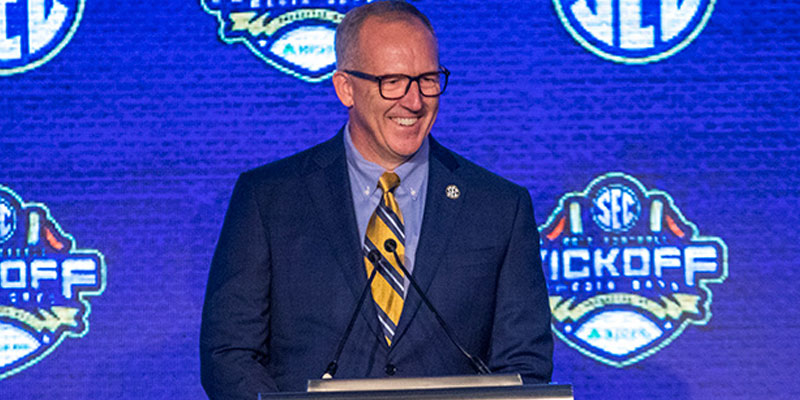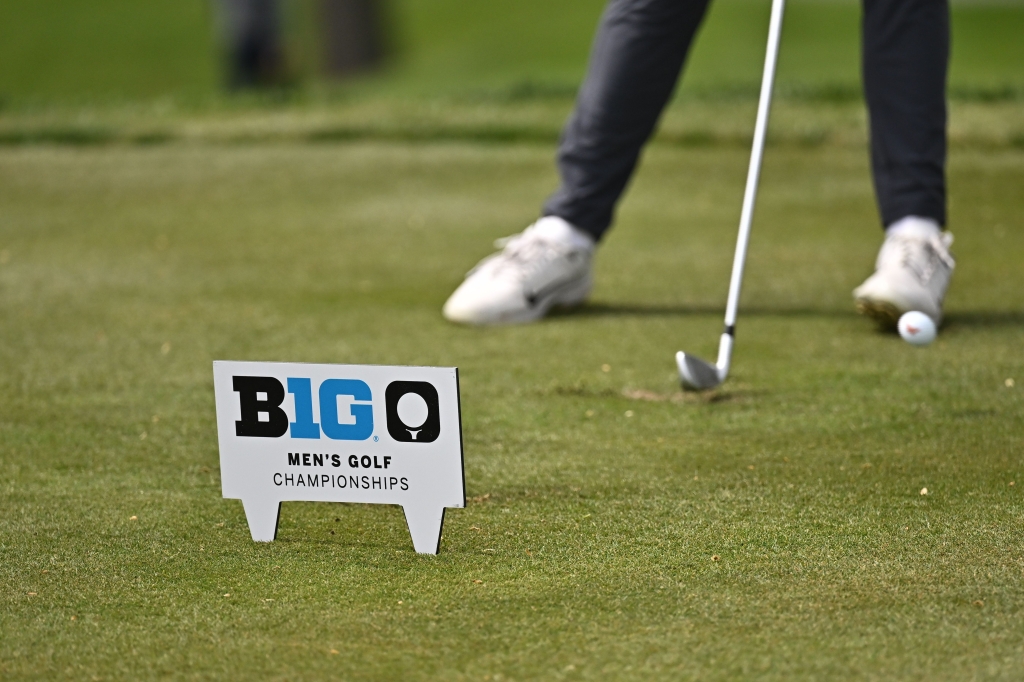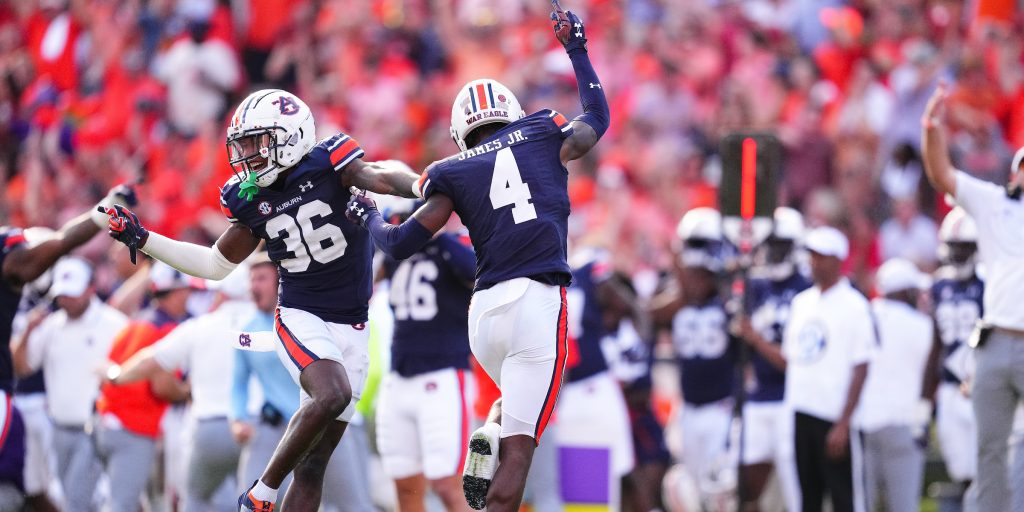The NCAA and its power conferences are involved in “deep discussions” to reach a settlement in the House v. NCAA lawsuit, ESPN reports.
The case, filed in 2020 by former Arizona State swimmer Grant House, alleges that the NCAA’s rules on name, image, and likeness (NIL) violate both “federal antitrust laws and the common law.” The lawsuit, which was granted class-action status last November, seeks damages dating back to 2016 for athletes who weren’t allowed to earn compensation from NIL.
The case is schedule to go to trial in January 2025. If plaintiffs are successful, the NCAA and its schools could be on the hook for over $4 billion in damages. Earlier this year, a source told The Athletic’s Justin Williams that a loss at trial could force the organization to declare bankruptcy and could even spell “the end of the NCAA, potentially.”
The catastrophic implications of a loss in court has “motivated many leaders across the [college sports] industry to seek a settlement,” per ESPN.
Jeffrey Kessler, an attorney representing the athletes in the House case, feels a settlement is the “quickest route toward transforming college sports.”
“I can’t guarantee this, but I think [the defendants’] lawyers have told them they’re in all likelihood going to lose,” Kessler told ESPN earlier this month. “If they lose, the damages are going to be gigantic. Further, they’ve been told that it’s much better for them to be active participants in settling and deciding their future lives and fate than it is to let the court impose it on them.”
RELATED: NCAA ratifies unlimited transfer rule
A settlement will still be costly to the NCAA — Yahoo Sports estimates the organization will owe athletes over $1 billion dollars in damages no matter what happens — but will likely offer the NCAA and its power leagues protection from future lawsuits for the next 8-10 years.
A potential settlement could also include resolutions in the Hubbard and Carter cases, two different class-action lawsuits against the NCAA, both of which are also headed by Kessler. In the words of college football reporter Ross Dellenger, a settlement could “kill three proverbial birds with one stone.”
A settlement would also include the details of a future compensation model featuring revenue sharing with athletes. According to Yahoo Sports, “[school] administrators briefed on a proposed new revenue-sharing model are expecting to share [with athletes] as much as $15-20 million per school, with a spending limit similar to a professional sports team’s salary cap.”
This proposal would only apply to teams in the ACC, Big 12, SEC, and Big 10. It’s unclear what would happen to schools at the Group of 5 level; many G5 athletic directors “hold such fear that this new revenue-sharing model will put them so far behind that they are at least toying with the idea of holding their own postseason event,” according to Dellenger.
A settlement in the House case is “not imminent,” but is expected to be finalized over the coming weeks. Yahoo reports that the end of May is the “looming deadline” to agree on a settlement.
For better or for worse, the case’s resolution will almost certainly shape the future of college athletics.
Charles Vaughan is a contributing writer for Yellowhammer News.




